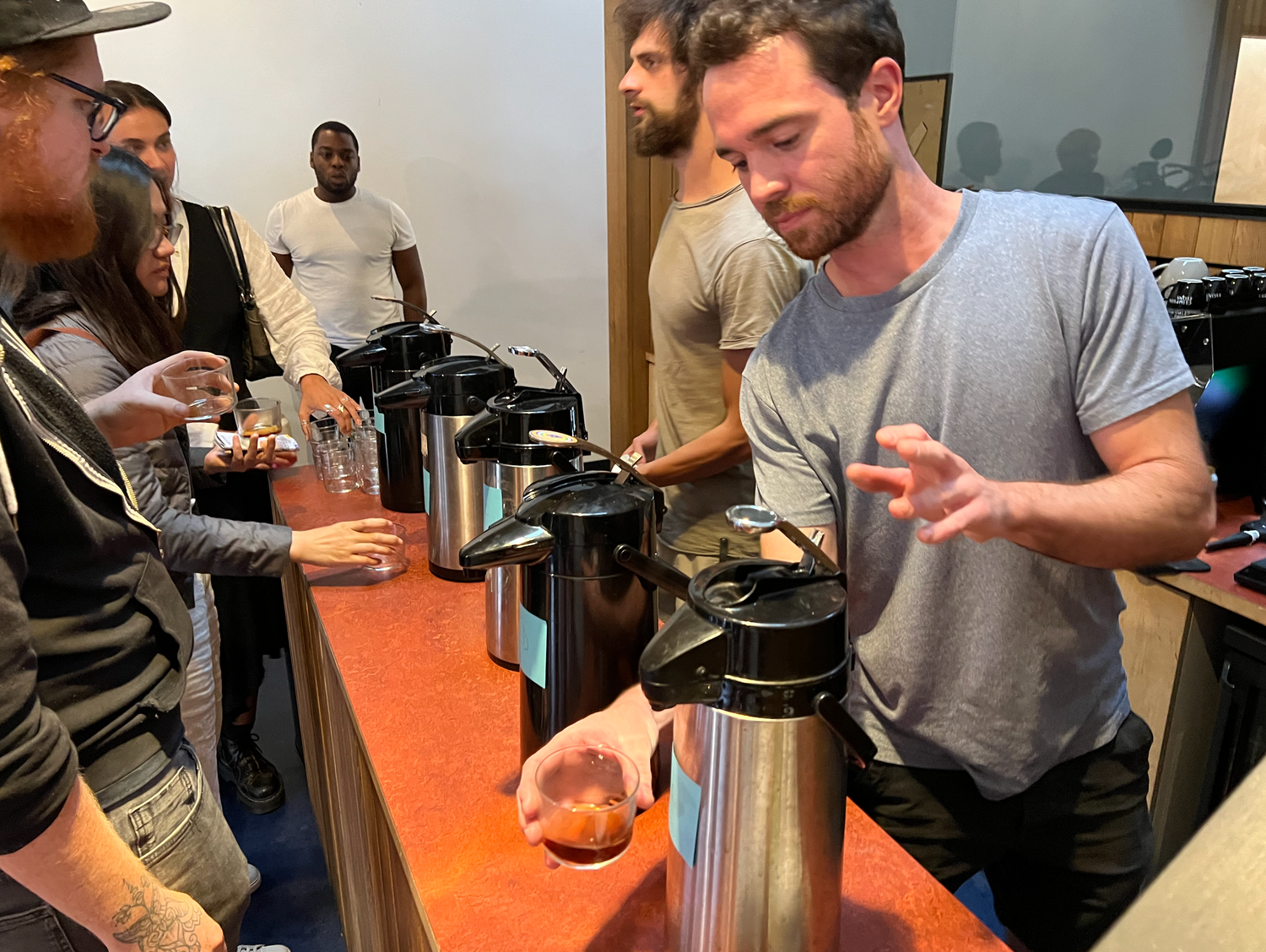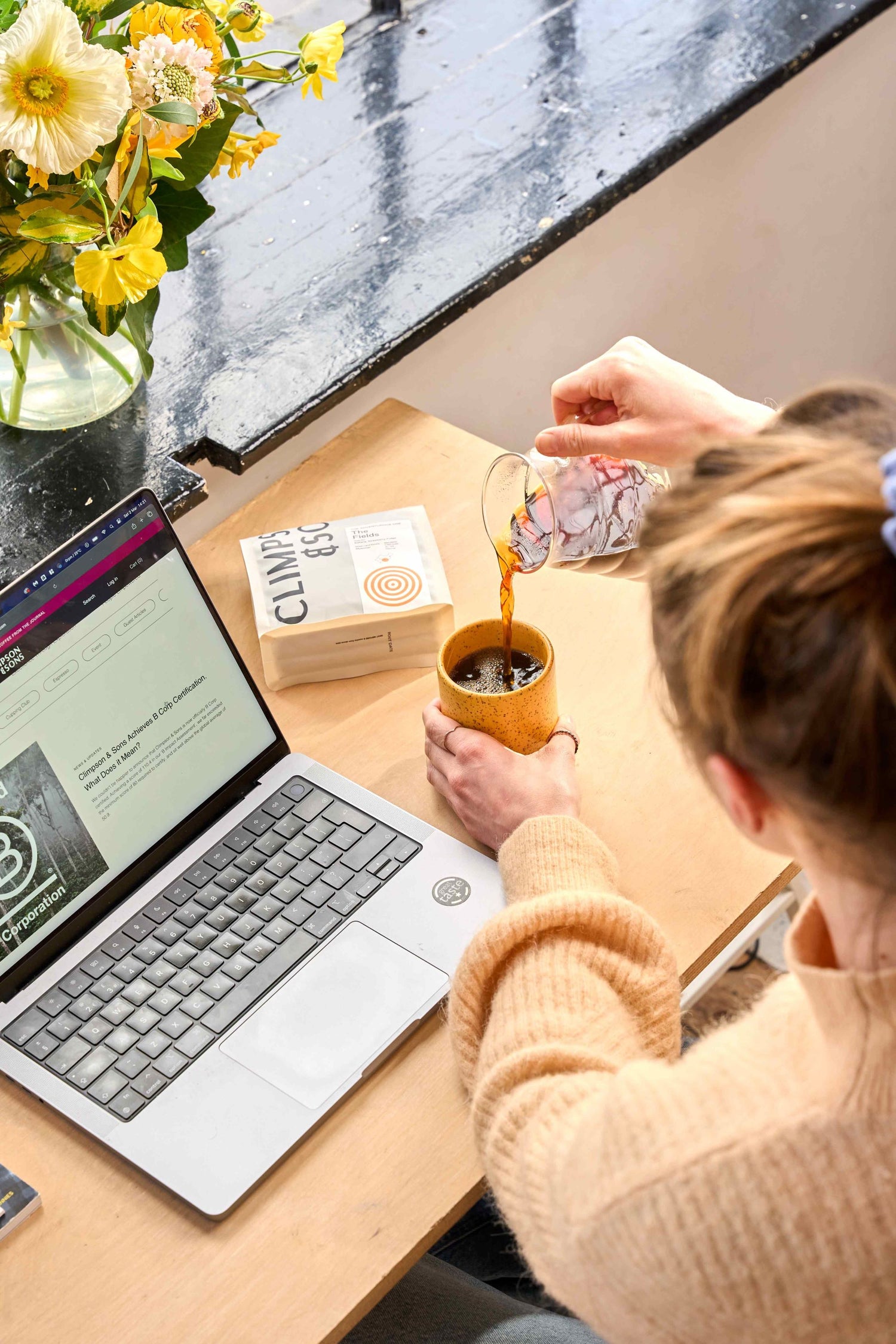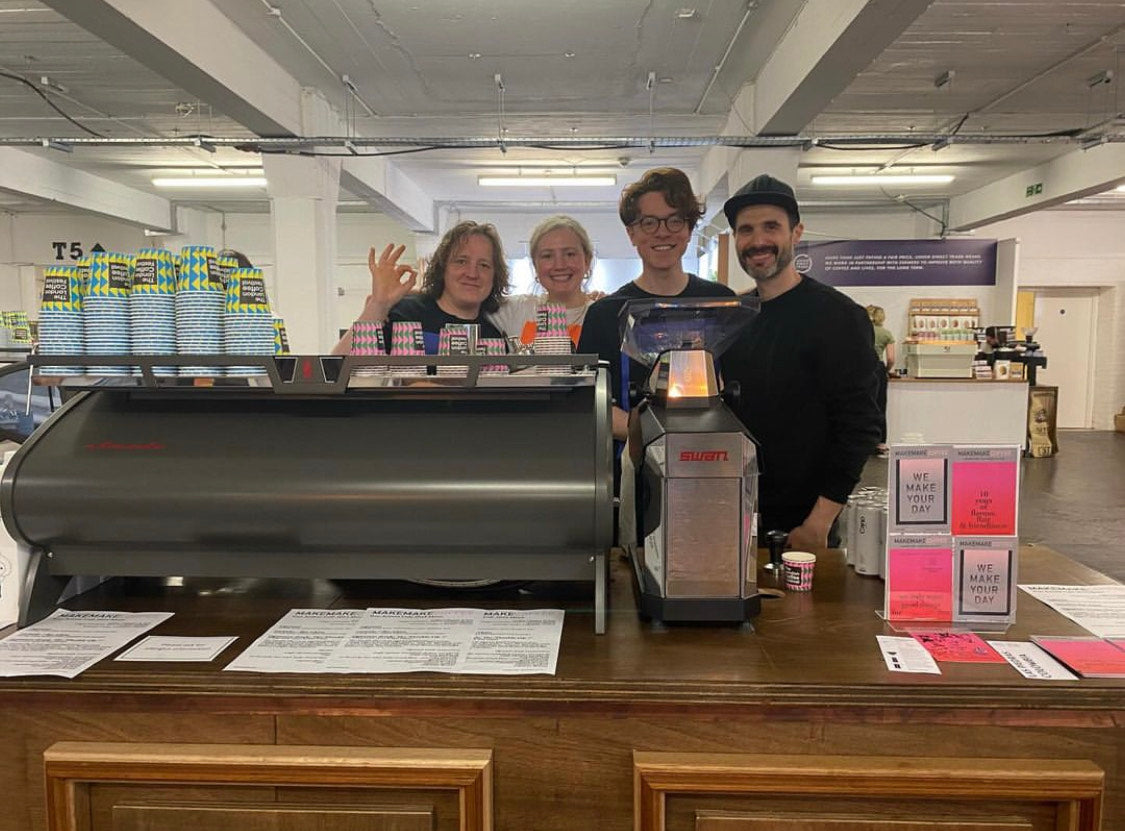Author: Kieran Lamont
A few years ago we hosted a cupping using 6 different waters to brew the same coffee so we could have a better idea of how water hardness and minerality affects flavour in specialty coffee. Oddly enough it turned out to be a pretty popular topic!
As we all know, water is approximately 99% of your cup of coffee and despite being somewhat flavourless, can have a big impact on the taste of your brew and extraction levels.

This time, we wanted to showcase waters that were as different as possible, to see what effect this had on the flavour of the coffee. We went with the following choices:
Alkaline Water
This is a relatively new trend in water consumption and is featured in many supermarkets. It is touted as somewhat of a healthy alternative as our bodies are all supposedly more acidic than we should be for optimal health, and regular consumption of this water is thought to alkalise your body. We thought this would be a great addition due to the inherent acidic nature of coffee.
Tap Water
I think most people would still brew with tap water at home due to convenience and cost. Coffee brewed with tap water often lacks clarity and balance, whilst also leading to limescale in our kettles and other brewing equipment, especially in London, where the water is particularly hard.
BWT Cartridge
The vast majority of our customers use this form of filtration for their espresso machines, as well as for batch brew in a cafe set up, so we thought this would be a good one to include. The cartridges are fully recyclable and the water undergoes 5 levels of filtration, including an activated charcoal stage which draws out any impurities.
BWT Magnesium Jug
We think these are great as not only do we stock them, they have a magnesium boost which is known to promote desirable acidity in your brew. The cartridges work out at about £6 for 120 litres of water and are a sustainable option compared to bottled water.
A Bespoke Water
To most people, this sounds a little odd but this is quite common in barista competitions and other highly discerning set ups. You start with a base of deionized water which has no particles and no impurities at all, you then add specific ratios of minerals such as magnesium and calcium for optimal flavour and extraction. The one we used was made by Charlie from our Broadway Market cafe in Hackney and the recipe and further details can be found here:
https://bit.ly/3zPPket
Deionized Water
This is a product of passing tap water through an electrically charged resin, resulting in water with zero parts per million (or close to) and is often used in engineering to prevent scale build up. Whilst this seems like it would produce clean tasting coffees, it would actually wreak havoc on an espresso machine as the boiler system relies on minerality in the boiler to complete internal safety systems. It also runs contrary to our preconception that minerals such as magnesium and calcium are essential for extracting flavours from coffee.
The Brewing Parameters
We used a washed Ugandan coffee that was rested for 2 weeks, Uganda often produces unusual yet delicious coffee and we thought it would be a great choice to test if water can take the flavour profile one way or another. Previously we went with cupping bowls but this time we went with batch brews as most people at home are probably brewing with a v60 or something similar. We did a 1:16 ratio of coffee to water and we tasted them blind so as not to let preconceptions determine our experience.
The Results
Tap water often divides the room when we do these exercises and this time was no different. Whilst most people agreed it was the worst due to the muddled flavours and less pronounced fruity notes, it wasn’t awful and it did give the coffee more body than the others, most likely due to its high minerality
The BWT bestmax cartridge produced pretty much everything we expected from that coffee, with balance, sweetness and complexity. They tend to produce water of approx 150ppm and many would argue that a number closer to 100 would bring out more clarity in filter coffee, whereas the BWT cartridges are predominantly suited to espresso.
Charlie's bespoke water was popular amongst the tasters and many rated it at the top due to the complex acidic notes and the perception of cleanliness. This makes sense as it's a time consuming and fairly expensive technique aimed at producing perfectly brewed coffee and the recipe was pulled from the barista institute website.
The majority of tasters agreed that the alkaline water brew had muted acidity, giving it a perception of a more rounded flavour that was very drinkable. Preferred levels of acidity in coffee are of course subjective, so this may be a good option for some.
Lastly, the deionized water came as a bit of a surprise to most, especially after telling everyone that minerals were essential for extraction. This brew was a few peoples favourite but it had much more pronounced acidity, likely due to lower extraction levels of the more bitter notes towards the end of brew. This again comes down to personal preference but unfortunately it is not an option for many as espresso machines rely on minerality to operate and the production of this water is expensive, as well as being inaccessible for most people.
In conclusion, there’s a lot to consider when choosing your water for home. Sustainability is of course a major factor and we should all aspire to choose options with less plastic involved. Beyond sustainability, it’s all about finding a water that is practical for you and one that makes coffee that you think is delicious.



